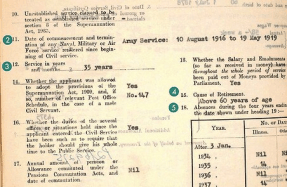PLOTS, PIKES, PLAGUE AND PURITANS

When we think of the 1600s, events come to mind from our history lessons at school. The Gunpowder Plot, the sailing of the Mayflower, the Civil War, the plague and the Great Fire of London. It was a century when our ancestors might have been caught up in an economic boom, with the establishment of trading companies, fuelled in part by the slave trade. The era was dominated by religious dissent and intolerance; neighbour turned upon neighbour, and a rumour of witchcraft could get you killed.
We all have 17th-century ancestors, even if they are still lurking, nameless, waiting to be discovered. Somewhere among the 4.8 million people who inhabited England and Wales in 1600 are the people many of us descend from. British family trees often break down in the 18th century. Either your ancestor remains elusive, or there is an embarrassment of riches: four John Smiths in the right area at the right time, and you may not be able to confirm which is ‘yours’ with any certainty. Some of us are fortunate enough to be able
You’re reading a preview, subscribe to read more.
Start your free 30 days



